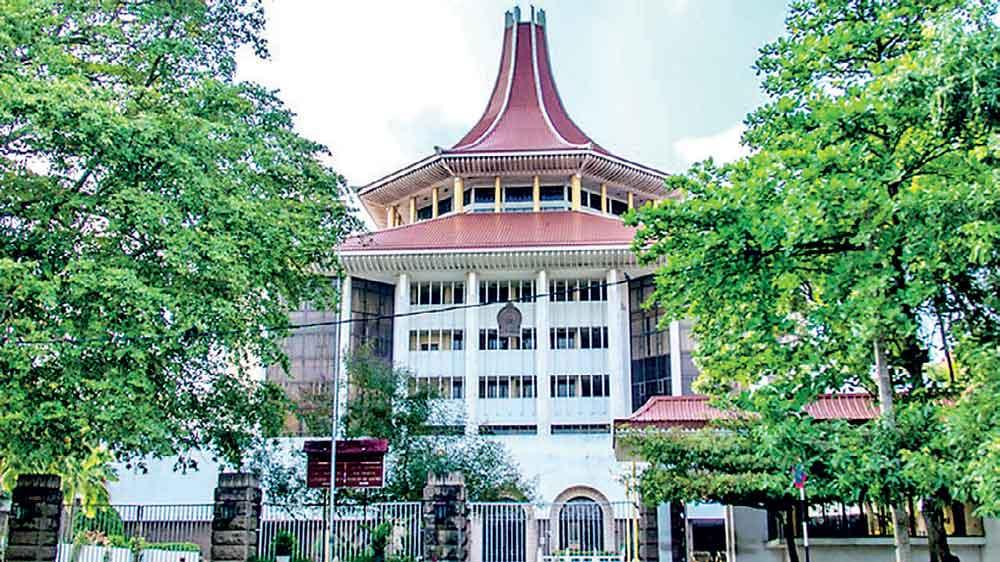Reply To:
Name - Reply Comment

The Supreme Court can have a maximum of 17 judges including the Chief Justice
 During the last few months or so, news items popped-up more often than not, on the appointment and non-appointment of judges to the Supreme Court and Court of Appeal due to the retirement of judges in both courts.
During the last few months or so, news items popped-up more often than not, on the appointment and non-appointment of judges to the Supreme Court and Court of Appeal due to the retirement of judges in both courts.
Article 107 (5) of the Constitution of Sri Lanka provides that the retirement age for Supreme Court Judges as 65 and the retirement age of Court of Appeal Judges as 63. Since the 20th Constitutional Amendment, The Supreme Court can have a maximum of 17 judges including the Chief Justice. The Court of Appeal can have 20 judges including the President of Court of Appeal.
Judges to the Supreme Court (as well as to the Court of Appeal) appoint by the President with the approval of Constitutional Council and the vacancies are usually fill by promoting career Judges and sometime as direct appointments from among the officers of the Attorney Generals’ Department and in rare occasions from the private bar.
As per the data published by the Economic and Social Commission for Asia and the Pacific, in the year 2000, the age group of 60+ population in Sri Lanka was 10.2% from the total population and that percentage has increased to 15.8% by the year 2020. It is predicted that by the year 2030, 20% of Sri Lankan population will be in the age group of 60+.
By the Minimum Retirement Age of Workers Act, introduced in year 2021, a major change brought to the retirement age of workers in Sri Lanka, who are now entitle to work till the age of 60, as oppose to the previous retirement age of 55.
With regard to the Supreme Court Judges in Sri Lanka, the retirement age is 65 since the past.
England has had no retirement age for judges until 1995. One of the famous judges in British History, Lord Denning was a judge from 1944 until he retired in 1982 as the Master of the Rolls at the age of 83. From 1995, English law came into force requiring newly appointed judges to retire at age 70. In 2021, Judicial retirement age was increased to 75.
USA does not have a mandatory retirement age for apex court judges. Article III of the US Constitution states that these judges “hold their office during good behavior,” which means they have a lifetime appointment. The Judges are free to retire at the age of 65 onwards subject to age and service requirements for retirement provided in section 371 of the Judiciary and Judicial Procedure. The 18th Chief Justice of USA, William Rehnquist was serving until he died in year 2005 at the age of 80. Last judge to retire in US Supreme Court was In January 2022, Stephen Breyer at the age of 84. The present Chief Justice of USA is John G. Roberts, Jr., now 69 years of age. As observed by Francis Shen of University of Minnesota Law School, in his research “Aging Judges” published in Ohio State Law Journal [Francis Shen, Aging Judges, 81 OHIO ST. L.J. 235 (2020)] the average age of federal judges in USA is sixty-nine years old. In addition, Greece, Austria and France appoint judges to their highest courts for life.
South Africa has two-fold retirement provision for its judges in the apex court called Constitutional Court of South Africa. As per section 176 of their Constitution, A Constitutional Court judge holds office for a non-renewable term of 12 years, or until he or she attains the age of 70, whichever occurs first, except where an Act of Parliament extends the term of office of a Constitutional Court judge.
India as well as Singapore maintain 65 as the mandatory retirement age for judges and in 2022 December Indian Justice Department stated that raising judges’ retirement age may benefit non-performers.
Retirement age of 70 for judges is common in most countries like – Japan, New Zealand, Belgium, Denmark, Ireland, the Netherlands, Norway and Australia.
In Canada, once appointed federally to the Superior Court, a judge can remain in office until the mandatory retirement age of 75.
Australia also provides their apex court judges (The High Court of Australia) a mandatory retirement at the age of 70, unless they retire earlier.
Therefore, by considering all the above aspects, it is desirable to increase the mandatory retirement age of the Supreme Court judges in Sri Lanka to 70 while permitting them to early retirement after the age of 65, a situation somewhat similar to Australia. Similarly, the legislature should consider increasing the retirement age of Court of Appeal judges to 65 from 63 and High Court Judges to 63 from 61.
(The writer is an Attorney at Law)